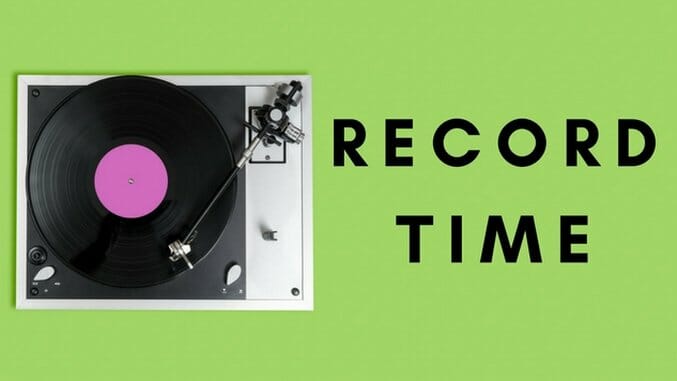Record Time: New & Notable Vinyl Releases (March 2019)

Record Time is Paste’s monthly column that takes a glimpse into the wide array of new vinyl releases that are currently flooding record stores around the world. Rather than run down every fresh bit of wax in the marketplace, we’ll home in on special editions, reissues and unusual titles that come across our desk with an interest in discussing both the music and how it is pressed and presented. This month that includes the first U.S. vinyl edition of a Tropicalia masterpiece, crucial reissues by three of the finest Black artists of all time and a well-conceived but poorly executed solo debut from a Rolling Stone.

Curtis Mayfield – Keep On Keeping On: Curtis Mayfield Studio Albums 1970-1974 (Rhino)
If Curtis Mayfield never released a solo album in his lifetime, he would have already cemented his legendary status through his work with The Impressions and the many hit R&B and pop tunes he wrote and produced for other artists. But he truly achieved God Mode in 1970 with the release of his album Curtis, an insta-classic featuring the irresistible epic “Move On Up” and seven other marbled slabs of psych-soul. From there, Mayfield connected with another gear for the rest of the decade: the soundtracks for Super Fly and Claudine, albums with Mavis Staples and Aretha Franklin and some killer live albums. This newly-released set only collects a fraction of the material from the ‘70s, but they are still essentials for any self-respecting vinyl collector. Curtis and Roots (the latter from 1971) set the tone of poignant yet groovy expressions of self-preservation and Afrocentrism that he slowly pulls apart on the other two studio efforts included in this set, 1973’s Back To The World and 1974’s Sweet Exorcist. Mayfield’s hopes for the future of Black Americans and the country as a whole aren’t terribly positive, which may account for his desire to get as much of his music out into the world as he could before things fell apart. But as with all of his best work, Mayfield renders his bleak outlook with bright shades and some of the funkiest, trippiest music of that time. The psychedelic era did a number on his mind, body and soul and the world was all the better for it.

Keith Richards – Talk Is Cheap (Mindless)
If this were the product of any other artist, this album would never have seen the light of day. The first solo effort from Keith Richards has the feel of a loose recording made with an unnaturally talented dad band that includes Ivan Neville, Waddy Wachtel, Bernie Worrell, Joey Spampinato and even ex-Stones guitarist Mick Taylor. It’s the kind of mess that only a big rockstar could make and still earn glowing reviews from Rolling Stone and a reputation that far outweighs its quality. But as it has reached its 30th birthday (which technically hit last October), it is now being anointed with a reissue appearing in multiple formats, including a big boxed set with bonus tracks, 7”s and a big book and a simple re-creation of the original 1988 release on vinyl and CD. No matter your feelings on the music, there’s zero argument that the new pressing of Talk sounds great. It hasn’t been remastered so far as I can tell and probably for good reason as that likely would have revealed further flaws in the fuselage of this rusty tanker of an album.

Ray Charles – Modern Sounds In Country & Western Music (Concord)
While the debates continue on the removal of Black artist Lil Nas X from the Billboard Country charts, let’s look back at a time when one prominent African-American musician dared to blur genre lines and wound up with one of his biggest crossover successes. Ray Charles was an avowed fan of country music and felt he could add something to the rootsy sound that he grew up with. So as his success was heading towards its peak and his power in the industry grew, he took the daring move to record 12 of his favorite country tunes, infusing them with the blues and jazz swing he was already known for and exposing how all these genres were influencing one another through the first half of the 20th century. The hit album and its sequel have been in and out of print since their initial release in 1962, with the most recent pressings arriving last month. And the first volume (the only one we were sent to review) has a nice sheen to it. Bob Fisher’s remastering work is subtle, gently turning up the lights on Charles’s inimitable vocals and bringing the rhythm section further out of the shadows. The ache of ballads like “Born To Lose” and “I Can’t Stop Loving You” and the winking joy of “Bye Bye Love” are still present, protected behind glass. Fisher just gives it once over with a fine chamois.
-

-

-

-

-

-

-

-

-

-

-

-

-

-

-

-

-

-

-

-

-

-

-

-

-

-

-

-

-

-

-

-

-

-

-

-

-

-

-

-













































